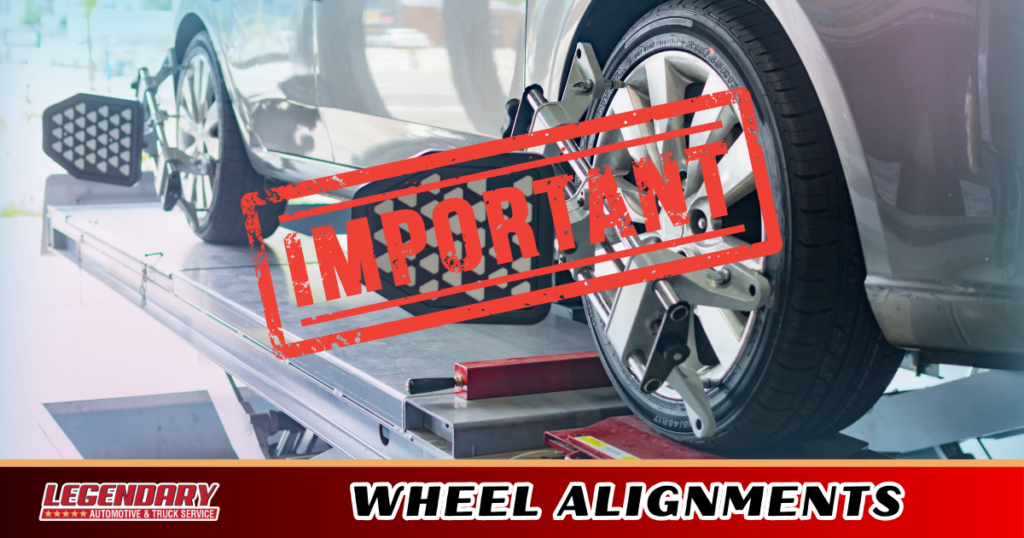IMPORTANCE OF WHEEL ALIGNMENTS

Your car’s wheels are like shoes – they need to be properly aligned for optimal performance, safety, and lifespan. Here’s why wheel alignments are important:
Safety First:
Enhanced Handling: Properly aligned wheels ensure your car tracks straight and responds predictably to steering inputs. This is especially crucial during emergency maneuvers or on slippery roads.
Reduced Stopping Distances: Misaligned wheels can increase stopping distances, extending the time it takes for your car to come to a complete halt.
Tire Wear Prevention: Misalignment causes uneven tire wear, leading to premature replacement and increased costs. Think of your tires as expensive shoes; proper alignment makes them last longer!
Improved Performance and
Efficiency:
Smoother Ride: Misaligned wheels can cause a vibration or pulling sensation while driving, making for a less comfortable ride. Proper alignment ensures a smoother journey for you and your passengers.
Fuel Efficiency: Misaligned wheels can increase rolling resistance, which means your car’s engine has to work harder to maintain speed. Proper alignment can help improve fuel efficiency and save you money at the pump.
Signs You Need an Alignment:
Uneven Tire Wear: The most common sign is noticeable differences in tread wear across your tires.
Pulling to One Side: Your car veers left or right while driving straight, even when you’re not turning the wheel.
Vibration in the Steering Wheel: You feel a shaking or trembling sensation in the steering wheel at higher speeds.
How Often Should You Get an Alignment?
Manufacturer Recommendations: Consult your owner’s manual for recommended alignment intervals. It typically ranges between every 5,000 to 10,000 miles, but can vary depending on your driving habits and road conditions.
After Certain Events: Get an alignment after hitting a curb, pothole, or any major impact that could alter wheel alignment.
Regular Maintenance: Consider getting an alignment as part of your routine car maintenance schedule.
Benefits of Regular Alignments:
Save Money: Regular alignments prevent uneven tire wear, extending tire life and saving you money on replacements.
Improve Safety: Proper alignment ensures optimal handling and stopping distances, keeping you and your passengers safe on the road.
Enhance Performance: Enjoy a smoother ride, better fuel efficiency, and overall improved driving experience.
Remember: Wheel alignments are a crucial part of preventive car care. By ensuring your wheels are properly aligned, you can maximize safety, performance, and the lifespan of your tires.
Don’t wait until you experience warning signs – schedule regular alignments as recommended by your car’s manufacturer.







